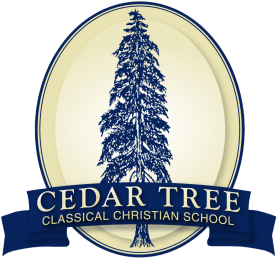Those manger scenes and the reminders of Jesus’ humble birth that we see this time of year call our attention to how Christian beliefs stand out. In fact, Christianity is unique among all of the world’s religions because it centers on a person and on events in real-life history. At its core it is not a philosophy, nor is it ethics. Christianity is about who Jesus is and what Jesus has done. The sacrifice of God’s Son is the only solution to the fact that my sin has made me an enemy with God.
Unlike the philosophy of addressing suffering propagated by Buddha or the moral systems of Islam, Christianity is about God creating a physical universe and how in the fullness of time the Son of God becomes fully human, uniting God with his creation in a particular time and location. Christ suffers death and is actually raised from the dead with a real, physical body. Every bit of this “good news” is historical and every bit of it is necessary for our salvation.
sometimes we lapse into thinking of Christianity as primarily a code of ethics
Even today we fight against these two general tendencies to misrepresent what Christianity is all about. Sometimes we tend to view it as chiefly a philosophy (abstract ideas; believing a set of doctrinal propositions; or “It’s only about faith”). And sometimes we lapse into thinking of Christianity as primarily a code of ethics (good behavior; driving a political agenda either of the Left or of the Right; or “It’s only about love”).
But we are instead called to hold up Christ, who is the way (only hope of salvation from our sins and only mediator between God and man), the truth (every part of reality is rightly understood only through his person and work), and the life (all that we truly need for eternal life). When Paul writes that “all the treasures of true wisdom can be found in Christ” (Colossians 2:3), he implies that every truth and rule to live by must be evaluated in light of his person and work. Therefore, the goal of education must be preparation for effective, Christ-centered believing and living.
Therefore, the goal of education must be preparation for effective, Christ-centered believing and living.
Sometimes it’s tempting to use the shovel to pry out a stump, but the handle will invariably break because the tool is not being used for its intended purpose. Like using a fishing pole to stretch a clothesline or a hoe used to hammer a nail, Cedar Tree’s mission of cultivating minds and nurturing hearts will completely miss its intended mark if the Lord Jesus Christ is not central. In all of the “book learning” of every subject, Christ must be at the center, or else it is stripped of its true wisdom and the one in whom all things hold together, becoming merely philosophy. All of our “character training” must be clearly tied to the person and work of Christ, or else we end up with a list of moral do’s and don’ts, becoming merely ethical duties.
When we teach, the facts of history should be reviewed and the ideas of its literature understood through a biblical lens. Precise steps of mathematics or grammar should be embraced and followed carefully as we seek to work as unto the Lord, using these mental gifts to his glory. We should provide opportunities for students to share their learning with other students, preparing for a lifetime of service to others.
When all these elements are integrated together, you have education which is powerful indeed because it not only mirrors the complex interconnections of real life more accurately, but identifies Christ as the unifying center of all things.
Even a simple manger scene can remind us about that.
Tom Bradshaw has been serving as Cedar Tree’s headmaster since 2006. This essay was first published in 2011.






